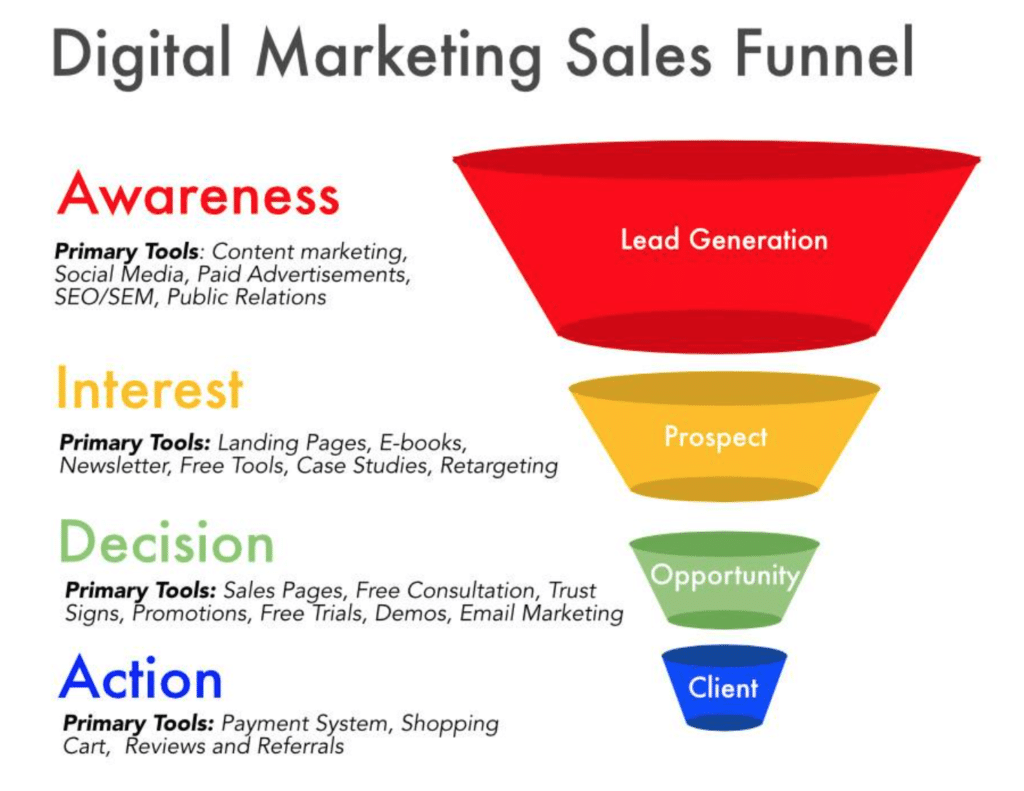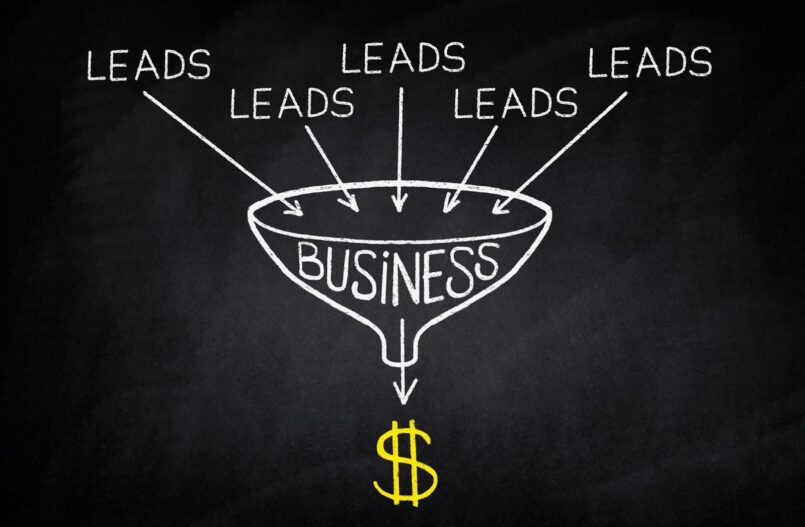Sales is just one aspect of a good revenue model. As a company, you still need to make sure that you have a healthy flow of qualified leads to feed your sales team. Inbound quality leads are every business’s dream, and developing a sales funnel helps make that dream come true!
But how do you do that with the help of a sales funnel?
Demystifying a sales funnel
A sales funnel is a strategy that divides leads into categories based on their position in the customer sales journey. It visualizes the path taken by a potential customer from being a lead opportunity to becoming a customer.
Companies need to generate qualified top-of-the-funnel leads and strategically push them through the funnel to make the final sale. However, most companies fail to achieve better quality leads and have poor marketing ROI.
So, we will decode the sales funnel and explain why it is important to increase your number of leads. When you better understand the funnel and its purpose, it becomes easier to find the holes in the system.
How does the sales funnel work?
As with any marketing idea, many words describe the different stages of the sales funnel. To make things understandable, we introduce the most commonly used terms to explain the funnel and how it turns visitors into buyers.
When visitors land on your website through search, they become a prospect. They may do several things on your website – from checking out the products, downloading a brochure, to reading blogs. To attract the visitor to become a lead, one good idea is to make them join your email list.
Once they have filled in a form or have interacted with the bot on your website they become your new leads. This is because now you can get in touch with people outside the boundaries of your website.
Leads are remarketed with special offers, discount codes, emailers, blogs, or SMSes.
From this point onwards, the sales funnel starts tapering as the number of leads are filtered at each level until a few finally become the buyer. Companies create more targeted messaging to connect with their audience during the entire journey!
Understanding the different stages of the sales funnel
Awareness
Awareness is the first and one of the most pivotal steps that people take towards becoming a consumer. It can happen through word-of-mouth or from a social media post. Without creating the right awareness, even the best products can run at a loss.
Creating the right awareness in certain product segments like FMCG or fashion can convince the customer even to make a buy.
However, it is an effort to leave a lasting impression on your customer and bring back the visitors in most cases.

Interest
During this stage of the sales funnel, consumers devote their time to comparisons and looking over their options. Ideally, consumers should be delivered credible content at this stage that does not make a sales pitch.
That is important since customers are more likely to buy from businesses they know they can trust.
When they trust your expertise and research about the product or service, you build a reliable connection with your prospects.
Decision
The decision is a phase of the sales funnel for customers who are down to selecting a product/ service from a select few options and ready to purchase. To help the customer choose you, you should put forward your best offer.
This could be a discounted price, free shipping, extra perks, or better service.
These will add more value to your product and help tilt the decision towards your brand.
Action
Once the customer reaches the bottom of the sales funnel, it is time for them to take action. They buy your product or service if done right, thus completing your sales strategy journey successfully.
However, not all customers that reach the bottom of the sales funnel will buy your product.
Retargeting should also be a part of your sales funnel, and you should focus on making sure that most of the prospects that reach the bottom of the funnel buy your product or become a part of your ecosystem.
To ensure this, make sure you create more touchpoints with the customer after their purchase. Provide good service and invite customer feedback to improve your product or service.
Why is the sales funnel important for businesses?
- It helps you draw a marketing strategy that will work for your business. Implementing a customized sales funnel for your business helps create a systematic lead gen machine, keeping in mind your business, industry, and audience. It gives you a competitive edge and a repeatable process to bring in leads and push them towards conversion.
- It helps you understand your target audience and their behavior better. Once you have decided on the sales funnel for your potential customer, you can create targeted copies and compelling offers to drive desired outcomes.
- It helps boost sales. After drawing a marketing strategy and understanding your customer better, the sales are bound to improve. Nailing the sales funnel pays for itself in the long run.
- It helps you identify problems in the customer journey. If you start collecting and analyzing your funnel data, it gives you deep insights into customer behavior and breakpoints where customers are dropping out in their journey. If the bottleneck in your marketing strategy lies in getting good quality leads, then you should focus on improving the awareness stage. But if you lack in the action stage, then you should plan your funnel accordingly and create more marketing assets to focus on conversions.
The sales funnel is an important step towards scaling and better profits. If you are looking to tailor your sales funnel to your ideal customer, contact Cusp Services today.


